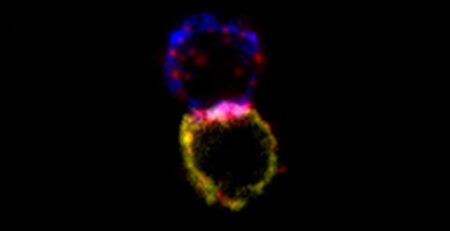Intestinal Bacteria and Mucosal Immune system
In the intestinal tract of mammals such as humans and mice, there are billions of bacteria, viruses and fungi, collectively known as microbiota; They peacefully coexist with the intestinal mucosal immune system due to the separation by a cellular mesenteric barrier. The question is whether gut bacteria is good or bad and what it means for the health and immune system.
Observations from the 60s of the last century showed that germ-free mice exhibited underdevelopment of some immune organs as well as activity of a certain immune cell. In 1989, David Strachan introduced the concept of a “hygiene hypothesis” after his team discovered that children with a sibling had a reduced risk of allergies such as hay fever (or fever) or eczema. He hypothesized that the higher risk of allergies in industrialized countries is due to the effects of cleaner hygienic lifestyles, and that when children come into contact with bacteria as a child, their risk is reduced muscle has the following allergic disease.
Today, with the era of antibiotic use and more hygienic lifestyles, away from the environment as the human ancestors lived, there is evidence that the diversity of gut bacteria is decreasing over generations and Along with that the frequency of allergic diseases is increasing. The “hygiene hypothesis” is revisited from the perspective: the loss of gut bacteria increases the risk of allergic disease; and more intensive research shows certain groups of gut bacteria that are able to shape certain components of the intestinal immune system.
So the next question, if you re-establish gut microbes, or at least focus on bringing back certain groups of beneficial gut bacteria, will help induce a beneficial immune response against infection or cancer? are not. A few years ago, research showed that faecal transplantation enhances the response to treatment for Clostridium difficile (a possible mechanism by rebalancing the gut bacteria in these patients).
Recently, a research group at the prestigious Keio University (Gs. Honda) isolated a group of intestinal bacteria (Coctail 11 strains, cocktai-11). This group fed mice without intestinal coctail-11 to this, and showed protective effects on the mice against Listeria monocytogenes infection as well as experimental skin cancers through strengthening an important group of immune cells ( CD8 IFN-γ T cells). Research on gut bacteria is still a hot topic in immunity and human health in general, so some scientists also consider intestinal bacteria as a missing body organ (microbiota – a missing organ).












